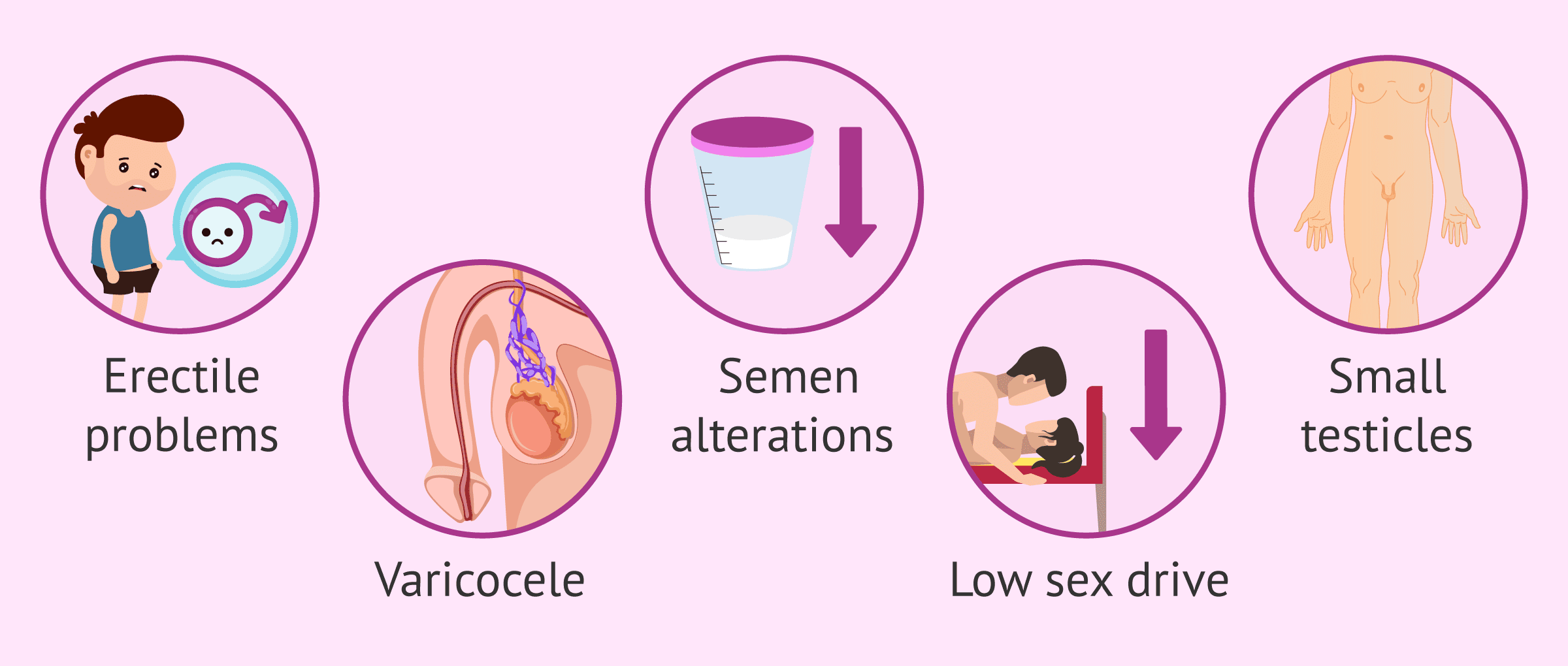Recognizing the Signs: Male Infertility Symptoms and Support for Parents
Hey there awesome parents and parents-to-be! If you’ve been dreaming of adding tiny, adorable socks to that laundry pile but it’s taking longer than anticipated, it might be time to look a little closer at potential hurdles. Specifically, we’re talking about male infertility—a topic that’s not always talked about openly, but oh-so-important to understand. Don’t worry, we’re here to guide you through the symptoms of male infertility with a bright smile and a heap of helpful info!
What is Male Infertility?
First things first, let’s get our facts straight. Male infertility refers to a man’s inability to cause pregnancy in a fertile female, often due to problems with his sperm production or delivery. But don’t let this get you down! Knowledge is power, and understanding the symptoms is the first step to addressing any challenges that may come your way.
Common Symptoms of Male Infertility
- Changes in Sexual Desire: A man’s libido is largely influenced by hormone health, which also plays a role in fertility. Significant changes in sexual desire might indicate an underlying hormonal issue affecting fertility.
- Erectile Dysfunction: Trouble getting or maintaining an erection can also be linked to infertility. If this has become a regular concern, it might be worth a conversation with a healthcare provider.
- Issues with Ejaculation: This can range from difficulty ejaculating to reduced volume of fluid ejaculated, which can certainly impact the chances of conception.
- Pain, Swelling, or a Lump in the Testicle Area: Any of these symptoms could hint at various conditions that might affect fertility, such as varicoceles or infections.
Hey superstar, if you or your partner is experiencing these symptoms, it’s essential not to jump to conclusions. Many of these signs can be related to other issues not directly linked to fertility. The key is to stay positive and proactive—reaching out to a healthcare professional is a fantastic next step.
Why Recognizing Symptoms Early is Important
Why is it crucial to spot these symptoms sooner rather than later? Early recognition of potential fertility problems can lead to earlier intervention, better treatment outcomes, and a smoother path to expanding your family. So, pay attention to your body’s signals and don’t hesitate to discuss them with a doctor. They’re there to help you navigate this journey!
Remember, you’re not alone in this. Around 1 in 7 couples may have difficulty conceiving, and in about 30% of cases, the cause is related to male factors. So, let’s keep this conversation going!
As you move forward, keep in mind that there are numerous causes for the symptoms listed above. Lifestyle factors, such as stress, diet, and exercise, also play a significant role in fertility. But no worries, my friend, we’ve got plenty of tips and tricks up our sleeves for those areas too. Stay tuned as we dive deeper into the causes of male infertility, plus ways to boost fertility and lifestyle adjustments to consider. Because no matter the obstacle, you’ve got the determination and support to overcome it.
And don’t forget, this is just the beginning! We will keep unfolding the aspects of male infertility, so you can be well-informed and ready to tackle whatever comes your way. It’s a journey, and guess what? You’re not walking it alone.
Stay cheerful and hang tight for our next segment where we’ll explore diagnostic procedures, treatment options, and address some common myths about male infertility. Because when it comes to building your family, every bit of information counts. Let’s get to the bottom of this together, one step at a time!

Five Essential Considerations for Parents Preparing for Infertility in Men Symptoms
Embarking on the journey of parenthood can present challenges, but being prepared can make all the difference. Here are five key things to consider when preparing for infertility in men:
- Understanding the Broad Spectrum of Symptoms: Male infertility is multifaceted and can manifest through a range of symptoms like the ones we’ve discussed above. Being well-informed about these symptoms means you are better positioned to take early action if necessary.
- Knowing When to Seek Medical Advice: If you’ve been trying to conceive for a year without success, or six months if the female partner is over the age of 35, it’s time to check in with a healthcare provider. They can guide you through the next steps and any necessary tests or treatments.
- Lifestyle Evaluation: Before diving into clinical evaluations, take stock of your lifestyle. Smoking, alcohol consumption, stress levels, and nutrition all significantly influence fertility. Making positive changes in these areas can be an empowering first step.
- Exploring Potential Treatments: Advancements in medical science have made several treatment options, such as medication, surgery, and assisted reproductive techniques like IVF, available to those experiencing infertility. Knowing your options helps with decision-making and setting realistic expectations.
- Emotional Support and Community: Facing fertility challenges can be emotionally taxing. It’s essential to cultivate a support network that can include family, friends, counselors, and support groups. Remember, seeking assistance for emotional well-being is just as vital as addressing physical health.
The road to resolving infertility issues can be complex, but with the right mindset and support, the journey can also lead to growth and resilience for aspiring parents. Stay vigilant, engage in open communication with your partner, and continue to be kind to yourselves. Each step, whether it’s adopting healthier habits or pursuing medical treatment, is progress towards the family you envision.
Equip yourselves with patience and positivity, and remember that each couple’s experience with infertility is unique—what works for one may not work for another. But by staying informed, consulting with professionals, and nurturing your relationship, you will navigate your path with wisdom and grace.
In our upcoming discussions, we will dive further into the nitty-gritty details of fertility treatments, funding options, support networks, and success stories. Infertility is a significant challenge, but with the wealth of resources available today, achieving your dream of parenthood remains a hopeful possibility. So, keep an eye out for more insights and encouragement as you forge ahead on this very personal, very possible adventure.
Knowing the physical and emotional landscape of infertility can equip you to face the journey with a stronger bond and a clearer direction. So, take this knowledge, sprinkle it with hope, and step forward. The path to parenthood, with its ups and downs, is a path worth traveling. Your resolve and unity as future parents are keys to your success, and there’s a whole community cheering you on!
See more great Things to Do with Kids in New Zealand here. For more information see here
Disclaimer
The articles available via our website provide general information only and we strongly urge readers to exercise caution and conduct their own thorough research and fact-checking. The information presented should not be taken as absolute truth, and, to the maximum extent permitted by law, we will not be held liable for any inaccuracies or errors in the content. It is essential for individuals to independently verify and validate the information before making any decisions or taking any actions based on the articles.




